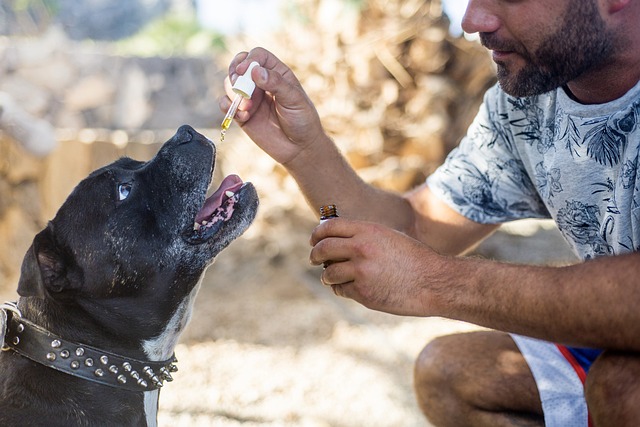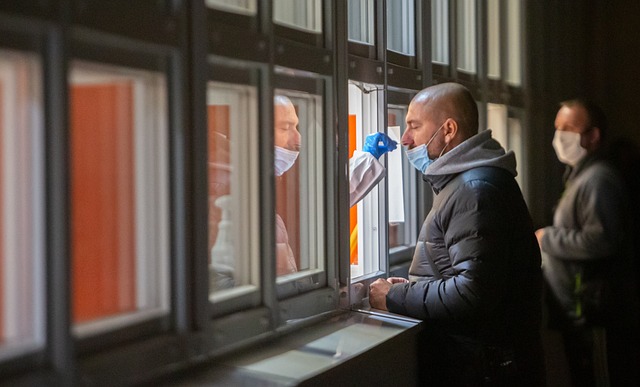Heavy Metals Testing for CBD products is a critical process ensuring their safety, quality, and purity in a rapidly expanding global market. Independent laboratories detect harmful heavy metals like lead, mercury, and arsenic using advanced techniques such as ICP-MS and AAS. This third-party verification is crucial for meeting regulatory standards, differentiating reputable brands, and fostering consumer trust. As the CBD industry grows, rigorous testing will continue to play a pivotal role in maintaining market integrity and protecting public health.
In the rapidly expanding CBD market, third-party testing is an indispensable pillar ensuring product quality and safety. This comprehensive guide explores the critical role of heavy metals testing in CBD products, addressing potential contaminants and health risks. We delve into the significance of independent labs, their testing processes, and the profound benefits for CBD brands in terms of consumer trust and market reputation. Additionally, we forecast future trends, highlighting advancements in testing technologies that drive continuous improvement in CBD product safety.
Understanding Third-Party Testing: Its Role in Ensuring Product Quality and Safety

Third-party testing is an essential process in the realm of product quality assurance, especially for industries like CBD (Cannabis-based products). This independent verification plays a pivotal role in ensuring consumer safety and market trustworthiness. When it comes to CBD, heavy metals testing by third-party laboratories is crucial because these substances can be potentially harmful if present in significant amounts. Such tests detect any contamination from heavy metals like lead, mercury, or arsenic, which may inadvertently find their way into the final product during manufacturing or production.
By outsourcing this critical testing to specialized, neutral parties, CBD manufacturers gain an objective assessment of their products’ safety. This is particularly vital as the market for CBD products expands globally, with varying regulatory standards and consumer expectations. Third-party testing not only safeguards consumers but also enables businesses to meet legal requirements, enhancing their reputation and fostering trust among customers who value transparency and product integrity.
The Relevance of Heavy Metals Testing for CBD Products: Potential Contaminants and Health Risks

In the realm of CBD products, ensuring product safety and quality is paramount due to their increasing popularity in the market. One critical aspect often overlooked is Heavy Metals Testing for CBD. This testing process plays a pivotal role in identifying potential contaminants that may be present in CBD oil, tinctures, capsules, or other derivatives. Heavy metals like lead, mercury, and arsenic are known toxicants with severe health implications, making their presence in CBD products unacceptable. Even trace amounts can have adverse effects on consumers over time, impacting various organ systems.
The relevance of Heavy Metals Testing for CBD cannot be overstated, especially as the industry continues to grow. Unregulated production or sourcing of CBD may introduce these heavy metals due to environmental factors or manufacturing processes. For instance, plants absorbing heavy metals from contaminated soil or water can subsequently enter the food chain via CBD extraction. Therefore, rigorous testing is essential to safeguard consumers and maintain the integrity of the CBD market, fostering trust among users and promoting responsible practices within the industry.
Why Independent Labs Are Essential for Accurate and Reliable Results

In the realm of CBD (Cannabis Sativa) product quality assurance, independent labs play a pivotal role in ensuring accuracy and reliability when it comes to Heavy Metals Testing. These third-party testing facilities operate with unbiased expertise, free from the biases that might influence in-house testing. They employ rigorous scientific methods and state-of-the-art equipment to detect even trace amounts of heavy metals like lead, mercury, and arsenic, which can be detrimental to consumer health.
The significance of independent labs becomes increasingly evident as the CBD market expands. With numerous brands entering the space, it’s crucial to have impartial testing to verify product safety and purity. This is especially critical for heavy metals, which can contaminate CBD products during cultivation or extraction processes. Independent labs provide an objective evaluation, ensuring that consumers receive reliable, high-quality CBD products free from harmful contaminants.
The Process of Heavy Metals Testing: Methods, Techniques, and Quality Assurance

The process of Heavy Metals Testing for CBD products involves meticulous methods and techniques designed to ensure purity and safety. It begins with sample preparation, where CBD extracts or finished products are thoroughly mixed with appropriate solvents to create a homogeneous solution. This solution is then analyzed using advanced instrumental techniques such as Inductively Coupled Plasma Mass Spectrometry (ICP-MS) or Atomic Absorption Spectroscopy (AAS). These technologies can detect and quantify trace amounts of heavy metals like lead, mercury, and cadmium, ensuring they fall within safe limits.
Quality assurance plays a critical role in Heavy Metals Testing for CBD. Strict protocols are followed to maintain laboratory accuracy and prevent contamination. Calibration and validation of instruments are routine procedures, as are the use of reference materials and blank samples to ensure reliable results. Inter-laboratory comparisons and regular training sessions further bolster quality control, ensuring consistent and accurate Heavy Metals Testing for CBD products across different facilities.
Benefits of Third-Party Testing for CBD Brands: Enhancing Consumer Trust and Market Reputation

Third-party testing is a game-changer for CBD brands, offering a multitude of benefits that significantly enhance consumer trust and market reputation. By employing independent laboratories to conduct thorough analyses, including Heavy Metals Testing for CBD products, brands can ensure product safety and purity. This external validation reassures consumers that the CBD they’re purchasing meets or exceeds industry standards and regulatory requirements.
The credibility established through third-party testing serves as a powerful marketing tool, fostering customer loyalty and driving market growth. With increasing awareness about product transparency, CBD brands that embrace rigorous testing protocols position themselves as leaders in quality assurance. This strategic move not only boosts sales but also solidifies the brand’s reputation as a trusted source of safe and effective CBD products.
Future Trends in CBD Product Safety: Continuous Improvement through Advanced Testing Technologies

As the CBD industry continues to grow and evolve, so does the need for robust safety standards. Future trends in CBD product safety will heavily focus on continuous improvement driven by advanced testing technologies. One key area of emphasis is Heavy Metals Testing for CBD, ensuring that products are free from potentially harmful contaminants like lead, mercury, and arsenic. Advanced analytical methods, such as inductively coupled plasma mass spectrometry (ICP-MS), play a pivotal role in achieving unparalleled accuracy and sensitivity in metal detection.
These technologies enable more comprehensive and efficient screening, pushing the industry towards higher quality standards. Additionally, trends point toward increased focus on third-party testing to establish credibility and transparency. By leveraging cutting-edge testing methods, CBD manufacturers can maintain consistent product safety, meet regulatory requirements, and ultimately, protect consumer health and well-being.
